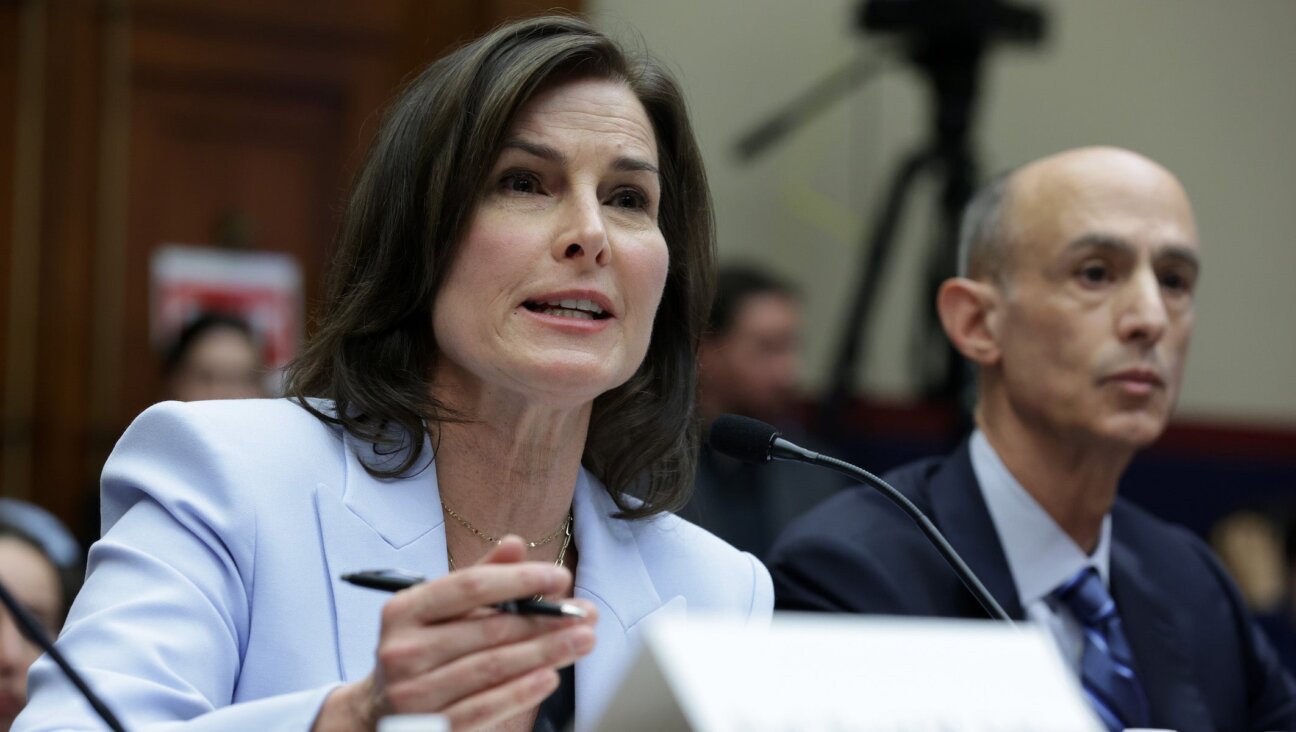In the face of tragedy, Rep. Jamie Raskin is an optimist

Rep. Jamie Raskin speaks at an event for the anniversary of the Jan. 6 insurrection. Image by Getty Images
Despite the gravity of the moment, Rep. Jamie Raskin seemed to be having a great time during Trump’s impeachment trial in early 2021. A former professor of constitutional law, Raskin appeared, at moments, to have forgotten that he wasn’t in the classroom, gesturing as he spoke impassionedly about the meaning of the Constitution.
It seemed clear that the congressman’s argument, however moving — his daughter had to barricade herself into an office during the insurrection — was doomed; the impeachment trial seemed to be more political theater than a true court proceeding.
But Raskin didn’t see it that way. “The truth of the matter is that I really thought we could win,” he told me during a Zoom conversation. “Right up until the roll was called, I thought we might win 100-0.”

Jamie Raskin By Getty Images
That stubborn idealism characterizes Raskin, who has clashed with Trump since well before the insurrection. “Love and the Constitution,” a documentary from MSNBC, chronicles Raskin’s battle against the former president, who was elected in the same cycle as the congressman. Madeleine Carter, the film’s director, lobbied Raskin for over a year to make the documentary, presciently seeing him as Trump’s biggest foe years before the insurrection; his deep commitment to the constitution stood in stark opposition to the former president’s attempts to flout it — “the constitutional law professor who goes to congress, and the constitutional outlaw,” as Raskin puts it.
“Donald Trump got elected the same night I got elected,” Raskin said. “I went from being a legislator to being much more like a demonstrator, an agitator against this authoritarian assault on all of our institutions.”
In the film, Raskin’s commitment to his ideals is palpable and contagious; we see him jogging down parade routes, suit jacket flapping, handing out pocket constitutions. “It’s got the impeachment clause in there!” he shouts cheerfully to constituents. “Constitutions are a big hit this year,” he adds to an aide, grinning. On Halloween, somehow, he successfully sells kids on taking a constitution with their candy.
Raskin is an unlikely candidate for fame; though charismatic, he’s often referred to as disheveled — in several scenes in the documentary, he’s in the classic Zoom outfit of pajama pants and a blazer — and his speech tends to be more professorial than political. Yet he has been thrust into the spotlight as one of the figureheads in the left’s fight against Trump’s attempt to overturn the election and challenge American democracy. For the anniversary of Jan. 6, profiles of Raskin came out in illustrious publications such as The New York Times and The New Republic. The congressman put out a memoir, “Unthinkable,” about the previous year, and The New Yorker named him one of the people of the year.
But “Love and the Constitution” shows far more than the lengthy profiles could because it starts before the Raskin family could ever imagine what was coming — in it, Tommy Raskin, the congressman’s son who died by suicide and was buried the day before the insurrection, is still alive and smiling, charming voters and encouraging his dad.
“I suppose my familial hubris is showing because I never doubt that he’s gonna win,” Tommy says in a speech at one of his dad’s campaign events. “It’s not because of his irrepressible, unrivaled wit, charm and humor — though there is that. It’s not because of his smashing good looks, though he has that to recommend him as well. It’s because he has deep and abiding moral convictions.”
Tommy’s death comes about halfway through the film, and Carter is there with her camera through the family’s trauma; Raskin chokes up every single time he mentions his son for the rest of the documentary. It is Tommy’s memory, Raskin says, that drove him through the impeachment trial; he repeatedly says Nancy Pelosi saved him by making him the House manager in the trial. “I did not know whether I would be able to do anything of meaning or substance with my life after Tommy,” he says in the film. “That’s why I say that Pelosi threw me a lifeline.”
Raskin says he has barely noticed his fame in the year since he stepped into the spotlight. “You know, um, so the truth of the matter is that I haven’t had a lot of time to think about that because we’ve emotionally just been so overwhelmed by the loss of Tommy, and I miss him so sharply that that’s the main thing in my mind,” he said.
Yet despite the tragedies of the past year, Raskin is trying to keep his head up and live as an example.
“Pessimism, jadedness, cynicism, apathy — all of these are a strategy,” he said. “Authoritarians and despots all over the world have used cynicism as a strategy because democracy does require a certain measure of hope and belief in the idea that people will get the answer right, and you’ve got to believe in the wisdom of crowds.”
“My dad used to say, when everything looks hopeless, you’re the hope,” he said. “So we can’t let people give up hope.”






















